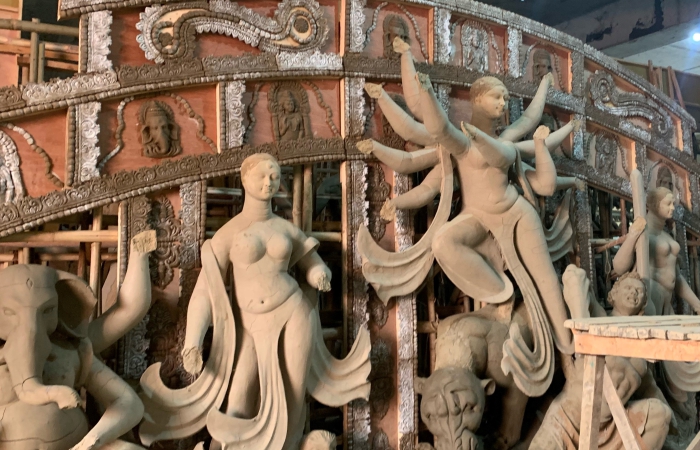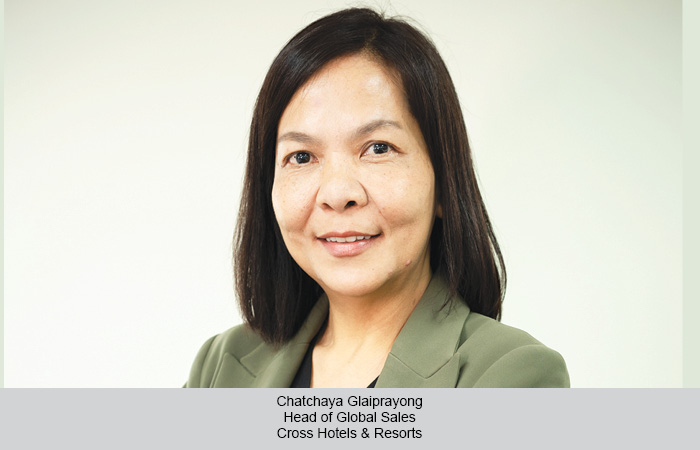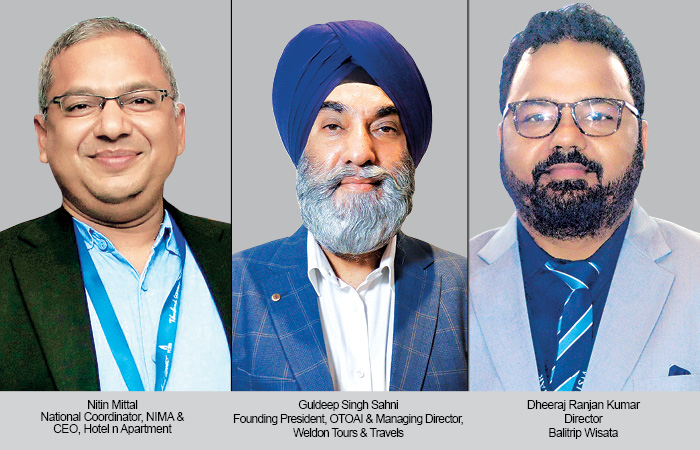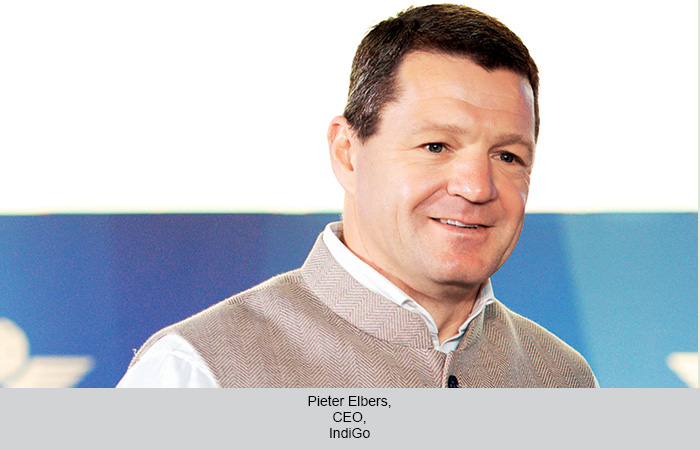In Ashwin month, Durga Puja celebration is observed for ten days. The festival, however, officially starts on the sixth day. It is thought that Goddess Durga arrived on Earth on this day. Shashthi, Maha Saptami, Maha Ashtami, Maha Navami, and Vijayadashami are the five days of Durga Puja. Every day has a unique purpose and importance. According to legends, demons and gods engaged in combat on the day of Mahalaya which is considered to be the first day of the Durga Puja festival.
Bryan
As Durga puja draws to a close, those who create the clay idols, or “protimas,” live under the constant control of their ongoing task. The TravTalk team has been invited by “Walkathon Tours” on an experiential tour to Jhilmil Kali Bari to learn more about how Durga idols are made, especially the artisans who give the idols their shape. During the tour to the Kali Bari, the TravTalk team met with an artisan by the name of “Sukumar Pal ” who has been carving and sculpting gods for centuries. They have been producing the idol of Durga for 50 years as a vocation. In the workshop, he is also recognised as the principal architect and designer.
The artists share one workshop where they all work, reside, and go about their daily lives in close proximity to their waiting clay idols. An idol unit, or chala, is made up of three goddesses: Lakshmi with her owl, Saraswati seated on a swan, and Durga riding her lion or tiger, flanked by Ganesha with the mouse and Kartik on a peacock. Durga, who is also holding up her ten hands with a weapon in each, stamps the despised Mahishasura underfoot. Intriguingly, the word “Durga” itself means “fort” in architectural terms, much like the enormous construction project performed by the idol makers who set out on a quest to bring these sculpted representations of the pantheon to life.
The creation of the eyes, known as “Chokkhu Daan,” is the most crucial step in the creation of the Durga idol. Only the principal architect creates the eyes of Durga Maa.The phrase “chokkhu daan” also refers to giving or donating one’s eyes, which is Durga Maa’s most distinctive feature.
A large number of other idol builders also travel to Kumartuli at the beginning of the year, which is the largest idol-making center in Bengal. They then alternate between Delhi and Kolkata for the duration of the year before settling in the capital for three to four months before the pujas. The largest puja pandals outside of Kolkata are located here between Chittaranjan Park in south Delhi and Kalibari in East Delhi, making Delhi a large city on their map.Since Goddess Durga vanquished the monster Mahishasur, it is thought that this celebration symbolizes the triumph of good over evil.
 TravTalk India Online Magazine
TravTalk India Online Magazine







